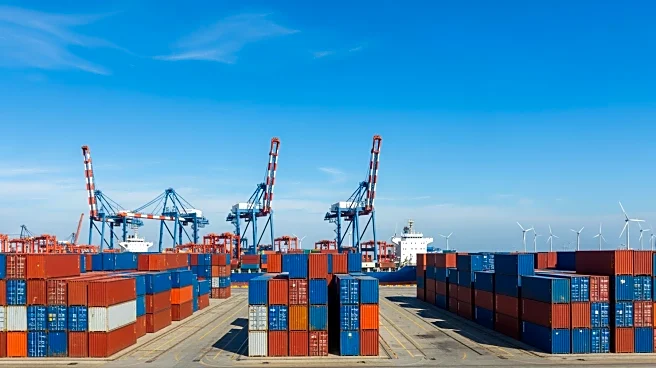What's Happening?
Nigeria's maritime trade has reached $29.9 billion, driven by currency reforms and energy sector expansion. The National Bureau of Statistics reports significant growth in export volumes via sea, attributed to foreign-exchange reforms and the operations
of Dangote Industries Limited's refinery complex. The reforms have made exports more competitive by unifying exchange rates, encouraging exporter activity. The Dangote refinery has also played a crucial role in boosting exports, particularly in fertilizers and refined petroleum products.
Why It's Important?
The surge in Nigeria's maritime trade signifies a positive shift in the country's economic landscape, potentially strengthening its position as a trade powerhouse in Africa. The currency reforms and increased export activity could lead to a stronger Nigerian economy, attracting more foreign investment and enhancing the country's global trade relationships. However, the balance between exports and imports remains critical to ensure sustainable economic growth. The developments in Nigeria's trade sector could also have ripple effects across the African continent, promoting regional economic integration and cooperation.
What's Next?
Continued policy support and structural reforms are essential to maintain the momentum in Nigeria's trade growth. The government and private sector must collaborate to create an enabling environment for further economic expansion. Monitoring the balance of trade and ensuring that export growth outpaces imports will be crucial for sustaining economic progress. Additionally, Nigeria's efforts to diversify its export base and reduce dependency on raw commodities could lead to long-term economic stability and growth.















